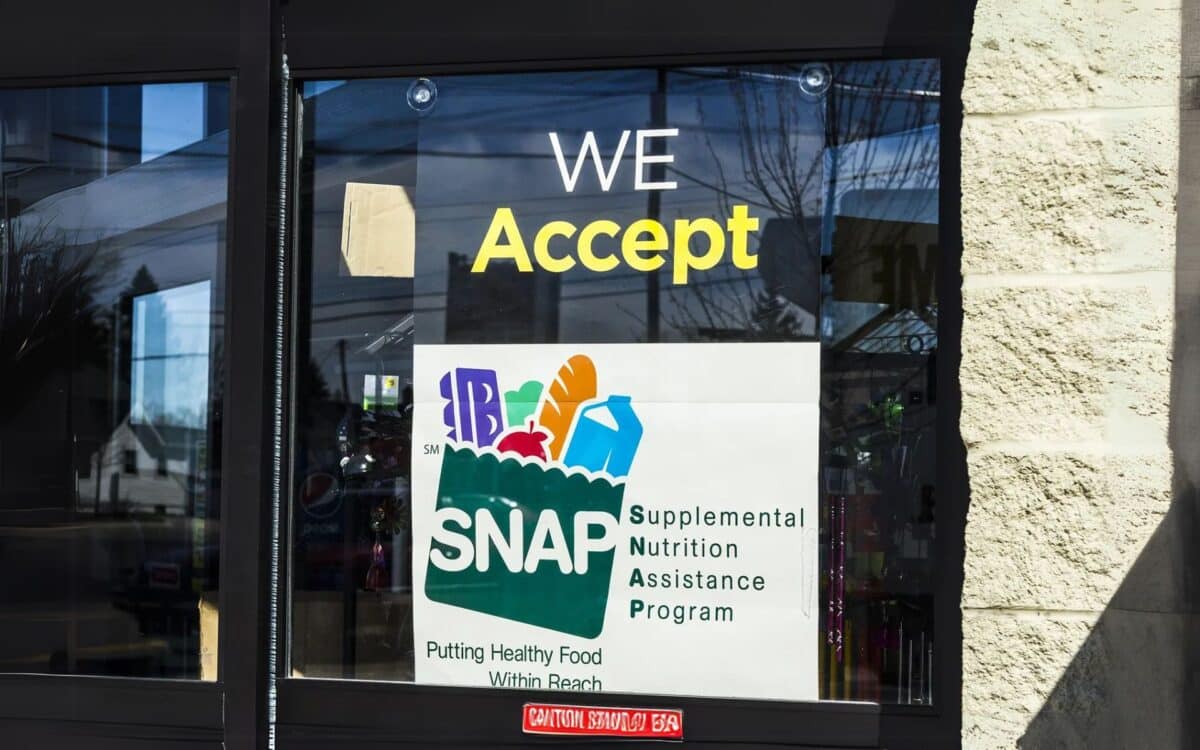A new bill in Congress, the Hunger-Free Future Act of 2025, has been introduced to protect SNAP benefits from potential reductions. Proposed by Democratic Representative Shontel Brown of Ohio, the bill seeks to secure key aspects of the program from budget cuts.
Amid ongoing debates over federal spending, especially with Republicans targeting agricultural programs, the bill has sparked significant discussion.
According to Newsweek, the legislation could serve as a safeguard against future reductions that may affect low-income Americans reliant on food assistance. The proposed changes have raised questions about the future of nutrition aid.
Why It Matters
The bill emerges amid a contentious budget cycle, with House Republicans proposing $230 billion in cuts to agriculture-related programs as part of their broader reconciliation strategy, which aligns with President Donald Trump’s domestic policy agenda. Since SNAP benefits fall under agriculture, concerns have risen about potential reductions.
While Republican leadership has assured that cuts to current benefits will be avoided, some lawmakers have acknowledged that the proposed savings might require changes to existing food assistance. Republican lawmakers told Politico that “some current food aid benefits for low-income Americans will likely be reduced” unless deeper programmatic cuts are made.
The bill would prevent the use of the budget reconciliation process to reduce SNAP funding, providing a layer of protection to nutrition assistance. It explicitly protects both current and future benefit levels, as well as calculations based on the Thrifty Food Plan, which determines the cost of groceries needed for a healthy, budget-conscious diet for a family of four.
Republican Budget Proposal and its Impact
The Republican budget resolution proposes significant cuts across federal programs, including those under the Agriculture Committee. Alarm bells have been sounded, particularly among Democrats, who worry that food aid could face drastic reductions.
The House Republican budget directs the Agriculture Committee to find $230 billion in savings, which likely exceeds what can be achieved through expanded work requirements or administrative changes. Some Republicans have stated that food aid for low-income Americans may face cuts unless deeper programmatic reductions are made.
However, Glenn Thompson, House Agriculture Chair, has argued that these savings will not impact benefits, but rather come from improving “program integrity” and state-level accountability.
States at Risk
While Democrat-run states would be heavily impacted by any cuts to SNAP, Republican-leaning states would also face significant consequences. States like California, Texas, and Florida have high SNAP participation, largely due to their large populations. Rural Southern states tend to have higher poverty rates, contributing to a greater need for food assistance.
If passed, Brown’s bill would prevent reductions in SNAP’s monthly benefit levels, the elimination of eligibility categories, or limitations to the Thrifty Food Plan. Additionally, it would restrict the use of reconciliation to impose administrative barriers that could limit access to SNAP benefits.
Reactions and Controversy
Several lawmakers have weighed in on the bill. Republican Representative Rob Bresnahan of Pennsylvania stated that he would not support any bill that threatens the benefits his constituents rely on :
“If a bill is put in front of me that guts the benefits my neighbors rely on, I will not vote for it.”
Meanwhile, Democratic Representative Shontel Brown fiercely criticized Republicans for attempting to cut food assistance to fund tax breaks for the wealthy, calling such actions “heartless” and “shameless.” Brown said in a statement :
“Donald Trump and Elon Musk: take your hands off SNAP. This bill sends a loud and clear message: we won’t let Republicans gut food assistance to fund tax handouts to billionaires… Slashing SNAP to help the ultra-wealthy buy another yacht isn’t just wrong—it’s heartless, gutless, and shameless.”
James P. McGovern, a senior member of the House Rules Committee, also denounced the proposed cuts, emphasizing that SNAP helps vulnerable groups, including children, seniors, veterans, and people with disabilities. He condemned efforts to slash benefits to fund tax breaks for the wealthy :
“SNAP helps make sure children, seniors, veterans, and Americans with disabilities have enough food to stay healthy. Donald Trump and Republicans in Congress are going after these very modest benefits – about $2 per meal – to pay for tax breaks for billionaires.”
“It’s a special kind of cruel to take food out of the mouths of hungry people to fund yet another tax break for the richest people in this country.”
Potential Outcomes of the Bill
Michael Ryan, a finance expert, explained that if the bill passes, it could stabilize SNAP benefits over time, potentially adjusting to rising food costs. Without such protections, the U.S. could face cuts ranging from $50 billion to $150 billion over the next decade, putting millions of families at risk. Ryan told Newsweek :
“If this bill passes, it would create a sort of safety net for the safety net. SNAP benefits would become more stable over time, potentially even growing to match rising food costs.”
However, Alex Beene, a financial literacy instructor at the University of Tennessee at Martin, believes the bill may struggle to gain traction in Congress. He remarked:
“This bill is an attempt to curtail those cuts, but it will more than likely fall on deaf ears. The majority of Congressional members are looking to maintain tax cuts enacted nearly a decade ago and are willing to cut other government programs to achieve that renewal.”
“At this point, it feels increasingly more of a question of not whether there will be a cut, but by how much.”









